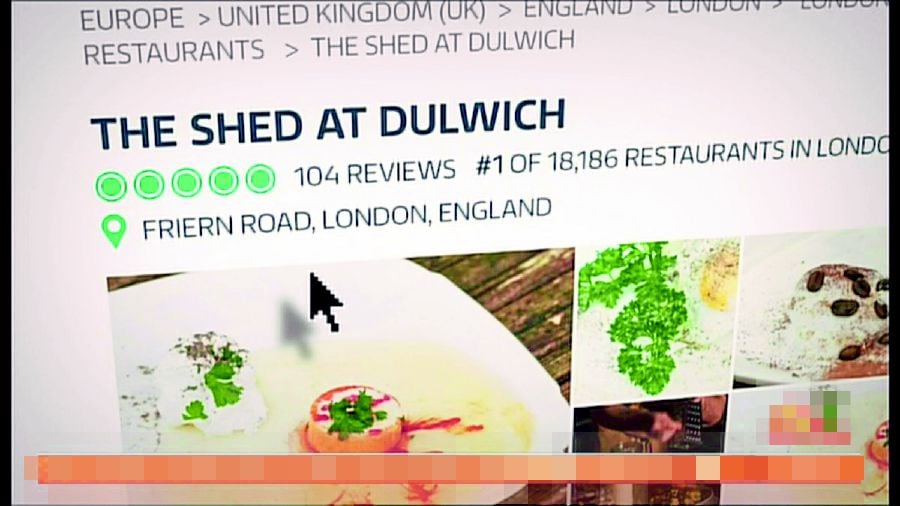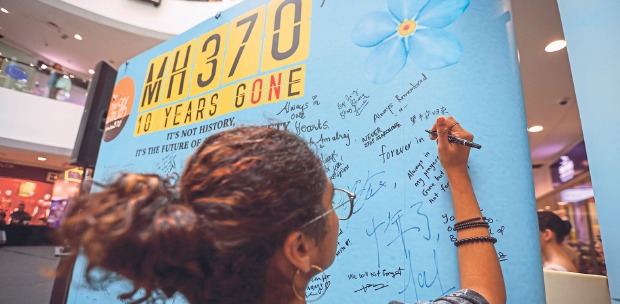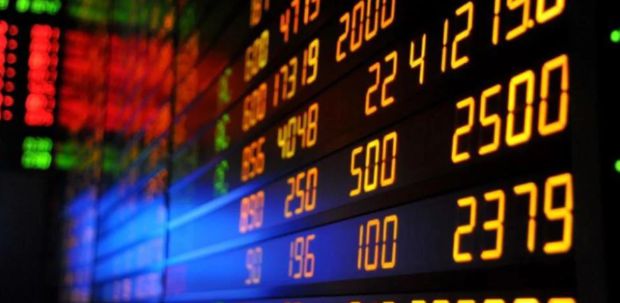THE story of The Shed at Dulwich is one that we should never forget. To recap, a young man named Oobah Butler created a fictitious restaurant called The Shed at Dulwich, and through fake reviews and manipulating demand (the restaurant was always “full”), it shot up to be ranked the #1 restaurant in London on the travel website TripAdviser.
“One day, sitting in the shed I live in, I had a revelation: within the current climate of misinformation...maybe a fake restaurant is possible?” said Butler, who writes for vice.com.
The Shed at Dulwich menu was completely made up, offering dishes named after moods as its gimmick, and photographs that looked inviting but were made using everyday items including shaving foam, gloss paint and bleach tablets.
The restaurant made its debut on TripAdviser ranked 18,186 in London, and with the help of fake reviews sent from different computers to avoid detection, rose to become London’s best within six months.
Butler capped off his ruse by actually opening for dinner one night. The lucky diners selected from a long waiting list were told to gather at a meeting point, and were led blind-folded to the Shed at Dulwich, where they were unknowingly served ready meals from a budget supermarket.
TripAdvisor would eventually respond to The Shed at Dulwich episode by saying: “Generally, the only people who create fake restaurant listings are journalists in misguided attempts to test us.
“As there is no incentive for anyone in the real world to create a fake restaurant it is not a problem we experience with our regular community – therefore this ‘test’ is not a real world example,” it said.
Butler himself, meanwhile, said there’s a positive and negative way to perceive what he accomplished with The Shed at Dulwich.
On the one hand, if he could fool the world that a collection of chairs outside his shed is London’s top rated restaurant, then people can no longer trust their senses about what they read online anymore.
“But I like to be positive. If I can transform my garden into London’s best restaurant, literally anything is possible,” Butler wrote.
I happen to think they’re both wrong.
On TripAdvisor’s part, it is naive to declare there is “no incentive” for anyone in the real world to create a fake restaurant. People have said or done stranger things, and will continue to do so.
What is the motivation for those who spread lies, fake news, rumours, false alarms, and gossip? Is it for monetary, political, or personal gain? It could be revenge, envy, or some other reason that we cannot even fathom.
The Shed at Dulwich creator, meanwhile, should know better than to summarise his experiment as either good or bad. It’s not about either extreme. First of all, The Shed at Dulwich does prove that not everything we read or see online is true. That is a fact.
Secondly, Butler did not transform his garden into the top restaurant in London. He successfully created the illusion of it. Illusion is not reality, and when the illusionist himself believes his trick is real, then he is delusional.
The Shed at Dulwich also proves that rankings can be manipulated. On a more technical level, this means that whatever algorithms or formula is used is not perfect. There can be a weakness or loophole, and whether by design or sheer luck, Butler found it and exploited that.
Remember these lessons whenever we surf the Internet, scroll and share posts on social media, or encounter rankings/listings.
As much as possible, check everything. In today’s age of misinformation, don’t take everything at face value.
Understand how the particular ranking or listing is made. Is it based on votes? If so, by whom? Is it based on the number of positive/negative reviews or likes? Are the reviews or likes/dislikes genuine? Can we tell?
There are millions of rankings, reviews, and comments that can sway opinions, influence societies and affect policies. Today it could be about restaurants, but what if it was about hospitals, universities, companies, their products and services?
Lokman Mansor’s New Year resolution is to disconnect from the Internet more often this year, and appreciate the real world.






